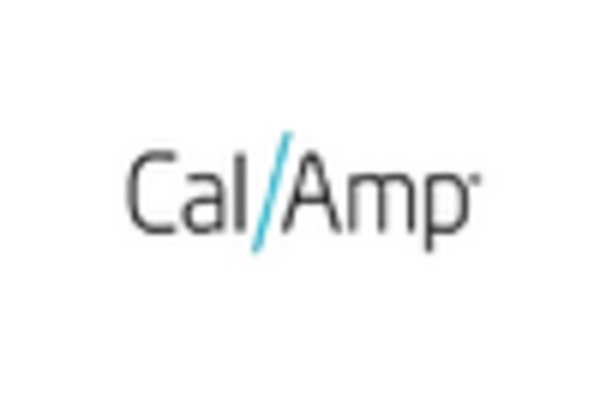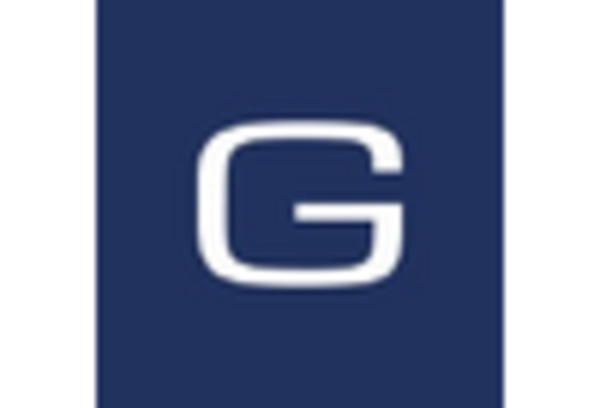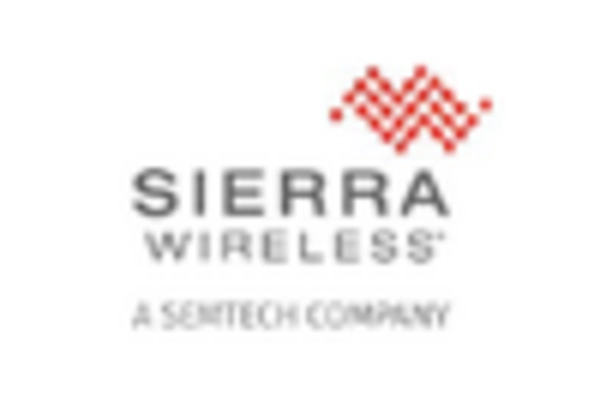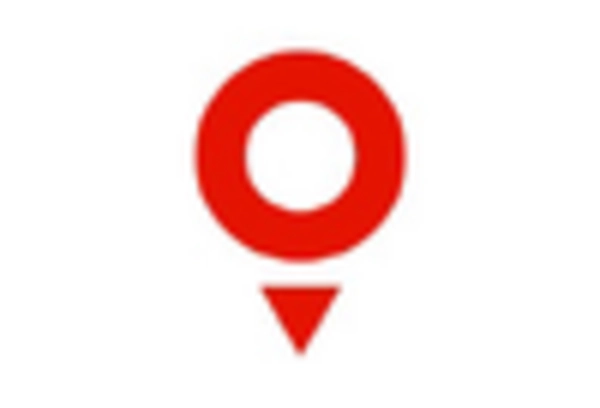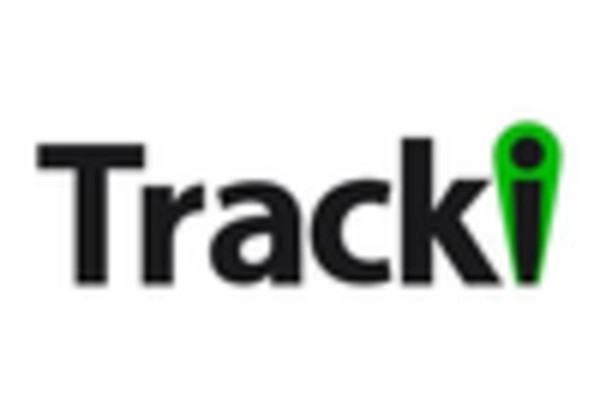Technological Advancements in GPS Tracking
Technological advancements are playing a pivotal role in shaping the GPS Tracker Market. Innovations such as enhanced satellite systems, improved accuracy, and integration with artificial intelligence are transforming the capabilities of GPS trackers. The introduction of advanced features, including geofencing, real-time alerts, and data analytics, is making GPS tracking solutions more appealing to consumers and businesses alike. Market data indicates that the integration of AI and machine learning into GPS tracking systems is expected to increase by over 20% in the coming years. These advancements not only enhance the functionality of GPS trackers but also provide users with actionable insights, thereby driving growth in the market. As technology continues to evolve, the GPS Tracker Market is likely to expand, catering to a diverse range of applications from personal safety to asset management.
Government Regulations and Safety Standards
Government regulations and safety standards are increasingly shaping the GPS Tracker Market. Many countries are implementing stringent regulations regarding vehicle tracking and monitoring, particularly in sectors such as transportation and logistics. These regulations often mandate the use of GPS tracking devices to ensure compliance with safety and operational standards. Market data suggests that the regulatory landscape is expected to tighten, leading to a projected increase in GPS tracker adoption by approximately 10% over the next few years. Companies are compelled to invest in GPS tracking solutions to meet these regulatory requirements, thereby driving growth in the market. As governments continue to prioritize safety and accountability, the GPS Tracker Market is likely to see a sustained increase in demand for compliant tracking solutions.
Rising Demand for Fleet Management Solutions
The GPS Tracker Market is experiencing a notable surge in demand for fleet management solutions. Companies are increasingly recognizing the value of real-time tracking to enhance operational efficiency and reduce costs. According to recent data, the fleet management segment is projected to grow at a compound annual growth rate of approximately 15% over the next five years. This growth is driven by the need for improved logistics, route optimization, and vehicle maintenance. Businesses are leveraging GPS tracking technology to monitor vehicle locations, fuel consumption, and driver behavior, thereby minimizing operational risks. As a result, the GPS Tracker Market is likely to witness a significant uptick in adoption rates among logistics and transportation companies, which are seeking to streamline their operations and improve service delivery.
Expansion of E-commerce and Delivery Services
The GPS Tracker Market is significantly influenced by the expansion of e-commerce and delivery services. As online shopping continues to gain traction, businesses are increasingly relying on GPS tracking to enhance their delivery operations. Market analysis indicates that the e-commerce sector is projected to grow at a rate of 20% annually, necessitating efficient logistics and tracking solutions. GPS trackers enable companies to provide customers with real-time updates on their orders, thereby improving customer satisfaction and trust. This trend is likely to drive the demand for GPS tracking devices, as businesses seek to optimize their delivery processes and reduce operational costs. Consequently, the GPS Tracker Market is expected to benefit from the growing need for efficient tracking solutions in the rapidly evolving e-commerce landscape.
Increasing Adoption of GPS Trackers in Personal Safety
The GPS Tracker Market is witnessing a significant increase in the adoption of tracking devices for personal safety applications. Individuals are increasingly utilizing GPS trackers to ensure the safety of loved ones, particularly children and elderly family members. Recent statistics suggest that the personal safety segment is expected to grow by approximately 12% annually, driven by rising awareness of safety concerns. This trend is further fueled by the proliferation of mobile applications that allow users to monitor the location of their family members in real-time. As safety becomes a paramount concern for many, the demand for reliable GPS tracking solutions is likely to escalate, thereby propelling the growth of the GPS Tracker Market. Companies are responding by developing user-friendly devices that cater specifically to personal safety needs.

